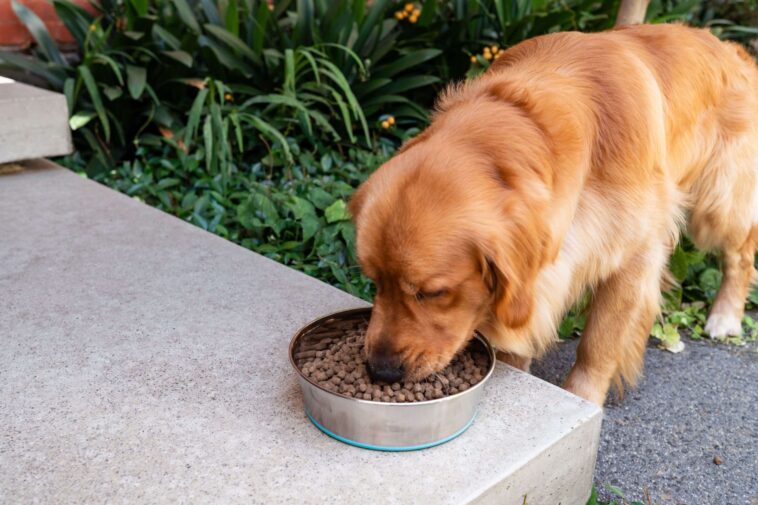There’s nothing quite like the unconditional love and loyalty of a pet. As an owner, you want to do everything you can to ensure your pet has a long and healthy life. One of the most important steps you can take is to ensure your pet is eating a balanced diet.
A balanced diet for pets should include all the essential nutrients, vitamins, minerals, and proteins needed to maintain good health. Not only does a balanced diet help ensure your pet is physically healthy, but it also helps promote their mental well-being. Feeding your pet a balanced diet can also help reduce the risk of many common pet diseases. Investing in quality pet food with balanced nutrition is an important way to keep your pet happy, healthy, and full of life.
Nutrients Needed for a Balanced Diet for Pets
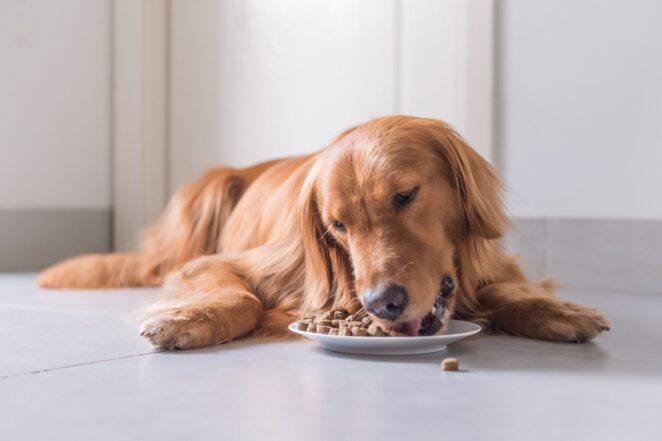
Vitamins are organic compounds that are required by the body in small amounts for normal growth and metabolism. They can be divided into water-soluble vitamins and fat-soluble vitamins. Water-soluble vitamins include Vitamin C and Vitamin B-complex. Fat-soluble vitamins include Vitamin A, Vitamin D, E, K, and minerals like Selenium.
Signs of an Unbalanced Diet for Pets
The symptoms of an unbalanced diet depend on the nutrient deficiencies your pet is experiencing. Certain nutrient deficiencies can lead to behavioral issues like hyperactivity, and increased, or aggressive behavior. This can be damaging to a pet’s social life and may make it uncomfortable in public spaces, like a park or shopping center. Nutritional assessment can identify these issues early on, and help you and your veterinarian address the underlying cause.
Nutritional assessment can also help you and your veterinarian identify dietary supplements your pet may benefit from, like additional vitamins and minerals. Dietary supplements are available as powders, capsules, or tablets, and are most commonly added to the diet.
Quality Pet Food for Balanced Nutrition
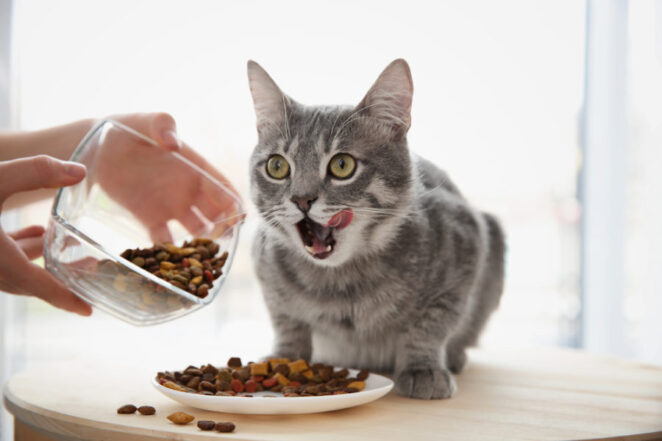
In addition to nutrients, the quality of your pet’s diet also matters. High-quality pet food contains ingredients that are sourced and produced responsibly. This ensures your pet receives optimal levels of nutrition from ingredients that are healthy and safe for your pet.
Feed your pet a balanced diet and you’ll enjoy longer, healthier, and more fun-filled lives together. If you feed your pet a balanced diet, they’ll be less susceptible to health problems related to nutritional deficiencies. Nutritional assessment can identify nutritional deficiencies, and dietary supplements can address them.
Healthy tips to help your dog gain weight
If your dog is skinny and underweight, there are several crucial steps you can take to help it gain weight healthily and safely. A combination of a balanced diet, exercise, and other lifestyle changes can significantly impact your dog’s overall health. Here are some tips to get started:
Feed your dog nutritious meals
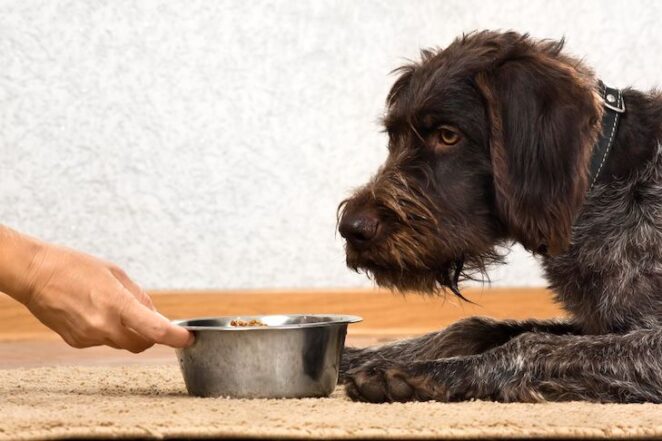
Feed your dog meals high in protein, such as lean meats like chicken or fish, is essential. Also, look for foods with complex carbohydrates and plenty of vitamins and minerals. Ensure the meals you provide contain enough calories for your pet’s size and activity level for optimal growth. Puppy food often has higher calorie counts than regular adult formulas. You can also add healthy oils such as flaxseed, olive, and canola oil to your dog’s meals to boost fatty acids.
Provide adequate exercise
Regular exercise is crucial for any pet’s health, including those trying to gain weight. Take your pup for regular walks or playtime in the yard. If you have access to a fenced-in area, let your pup run around off-leash, as this will help burn extra calories and encourage muscle growth. Swimming is another excellent way to get physical activity without putting too much strain on their joints or muscles.
Increase meal frequency
Smaller but more frequent meals can be beneficial when it comes to helping your pup gain weight. Divide the recommended serving size into three to four meals daily and feed them consistently. If your pup does not finish the meal, remove it after 20 minutes to prevent overconsumption later.
Offer healthy treats
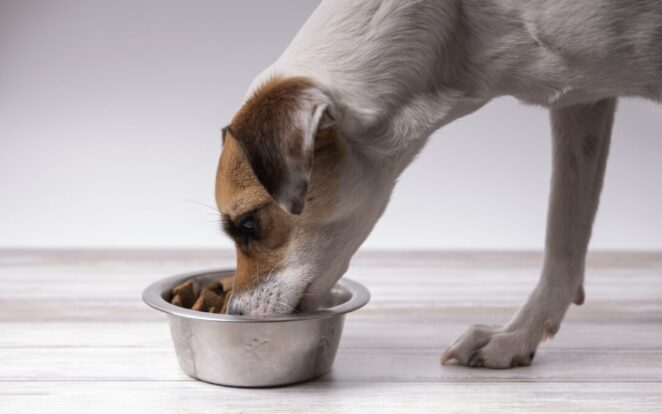
Treats are an effective way to give your pup an extra calorie boost, but make sure you’re offering healthy options such as jerky, boiled eggs, cheese, and bananas. Avoid processed treats that contain artificial colors and preservatives. You can also use plain yogurt or canned pumpkin as a low-calorie alternative when giving rewards during training sessions.
Monitor weight gain closely
Once you’ve implemented these changes in your dog’s lifestyle, monitor their progress closely. Regular weigh-ins are recommended to ensure your pup gains weight at a healthy rate. If you notice any sudden changes, take your pup to the vet for an examination.
Healthy meal option ideas for your dog
You can try plenty of healthy alternatives when providing a balanced diet for your pup. Lean proteins like chicken, turkey, and fish are excellent sources of essential fatty acids and amino acids that help your pup maintain muscle mass. Add boiled eggs or yogurt to add extra protein, vitamins, and minerals.
Healthy carbohydrates can also be beneficial when it comes to helping your pup gain weight. Whole grains such as oats and brown rice are great options since they contain fiber that helps reduce the sugar absorption rate in the bloodstream. You should also look for foods with complex carbohydrates, like sweet potatoes and legumes, which provide a slow release of energy throughout the entire day.

You should also include vegetables in your pup’s diet for their vitamin and mineral content. Add shredded carrots or zucchini to your pup’s meals for added nutrients without adding extra calories. Leafy greens like kale or spinach are excellent sources of dietary fiber, which helps regulate digestion and support healthy weight gain in dogs.
In addition to these whole-food options, you can supplement your pup’s meals with probiotics or omega fatty acid supplements for digestive support. Make sure you follow the recommended dosage according to your pet’s size and age, as too much can harm their health, so consult a vet before making any changes.
By balancing their diet with lean proteins, complex carbohydrates, vegetables, and high calorie dog food, you can ensure that your pup gets all the nutrients they need while gaining weight safely. With proper care and attention during this time, you can ensure that your pup stays fit and healthy for years to come.
Conclusion
Help your underweight pup gain weight safely and healthily by following these tips. With the proper diet and exercise, you can ensure that your canine companion reaches their ideal weight and remains healthy for years to come. Consult a vet for personalized advice if you have concerns about your pup’s diet or lifestyle.



